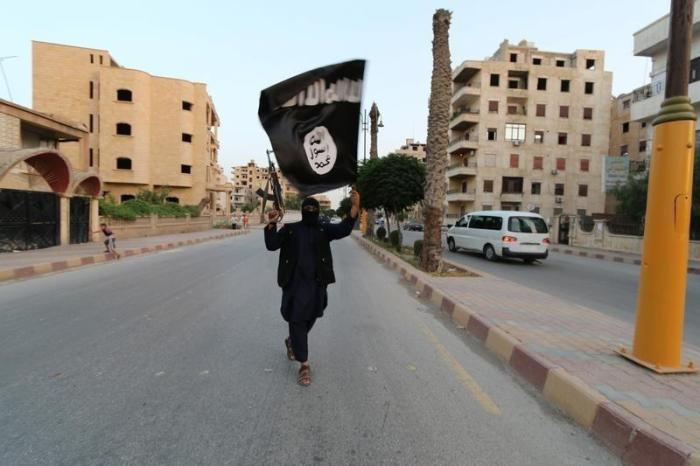
More than 400 individuals who fought with the Islamic State terror group in Iraq and Syria have returned to the United Kingdom without facing prosecution, according to a new report by Parliament’s Joint Committee on Human Rights.
The committee said no IS (also known as ISIS, ISIL or Daesh) fighters have been successfully prosecuted in the U.K. for war crimes, genocide or crimes against humanity.
The JCHR report, published last week, states that despite the U.K.’s recognition of these crimes — particularly its genocide of the Yazidi community in northern Iraq that began in 2014 — there has been no domestic accountability for these international offenses.
“The UK Government has formally recognized that the acts committed against the Yazidi people by Daesh were acts of genocide. However, despite this recognition, there have been no successful prosecutions of Daesh fighters in the UK for international crimes, including genocide,” the report states.
“To remedy this concerning reality, we recommend several changes to policy and law to achieve greater accountability of Daesh fighters for their crimes. The focus of the police and the Crown Prosecution Service have been on investigating and prosecuting individuals for terrorism offenses, rather than international crimes, which include genocide and war crimes. We call for a fundamental change from an approach focused only on terrorism offenses to one that considers terrorism offenses alongside international crimes.”
The committee criticized the current focus of law enforcement and prosecution authorities on terrorism-related charges, which it said fail to address the nature and scale of IS atrocities, including murder, rape, sexual enslavement and torture.
British nationals were among those who joined IS in Iraq and Syria between 2014 and 2019, during which the group committed systematic crimes against religious minorities. The report noted that over 5,000 Yazidis were killed, more than 2,700 women and children remain missing, and about 200,000 were displaced during the IS campaign.
These acts were officially acknowledged by the U.K. government in 2023 as constituting genocide. IS actions were declared a genocide by the United States in 2016 during the final year of the Obama administration.
The committee urged a shift in legal strategy, calling for the U.K. to expand its legal jurisdiction so that genocide, war crimes and crimes against humanity can be prosecuted regardless of nationality or residency status.
The International Criminal Court Act 2001 restricts prosecution of these crimes to U.K. nationals, residents or persons under U.K. service law. By contrast, the U.K. already applies universal jurisdiction to torture and grave breaches of the Geneva Conventions.
To close this gap, the JCHR recommended an amendment to the Crime and Policing Bill to remove the nationality and residency requirements for prosecuting genocide and related crimes. This would bring the U.K. in line with countries like Canada and the U.S., which allow for prosecution based solely on the suspect’s presence in the country.
The report criticized the government’s continued reliance on courts in Syria and Iraq, describing them as ill-equipped to handle prosecutions for international crimes. It cited concerns about the lack of fair trial standards, the use of torture and the risk of the death penalty in these jurisdictions.
U.K. investigators and prosecutors told the committee they believed prosecutions in-country were unlikely and that the U.K. should instead take responsibility.
Evidence presented to the committee revealed that despite the return of hundreds of British IS fighters, very few cases have even been referred to the Crown Prosecution Service for potential charges under international criminal law.
The Counter Terrorism Command had previously treated these cases through a “terrorism lens,” with insufficient familiarity or focus on international crimes.
The committee called for more proactive investigations using structural or thematic approaches, such as mapping the crimes committed against the Yazidi population, rather than waiting for individual suspects to enter the U.K.
Witnesses criticized the delays in initiating investigations and the lack of coordination between the Home Office, CPS and police.
In its recommendations, the JCHR also flagged the U.K.’s use of citizenship deprivation orders. Between 2010 and 2023, at least 222 such orders were issued on national security grounds. This practice risks weakening accountability, as removing citizenship can prevent the U.K. from prosecuting suspects for crimes it has jurisdiction over only by virtue of nationality or residency, the report contends.
Concerns were also raised about British nationals still detained in camps in northeast Syria, including children. The committee said these camps amounted to de facto detention centers with no access to legal aid, medical care or basic rights.
The U.K. government’s current policy is to repatriate children only in “feasible” circumstances, which the committee said may violate international obligations to protect the rights of the child.
Failure to act risks leaving international crimes unpunished and survivors without justice, the report argues, calling on the U.K. to ensure that its laws and institutions are equipped to prosecute ISIS crimes domestically and to secure international justice for victims.

















